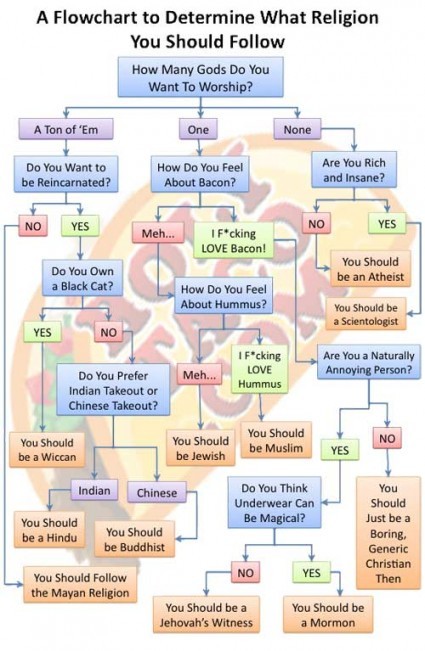Via Mudra Mehta, here’s a superb comic by 
So all you girls complaining about how your man’s always late for a date, consider how it would be if he had Windows inside.
Via Mudra Mehta, here’s a superb comic by 
So all you girls complaining about how your man’s always late for a date, consider how it would be if he had Windows inside.
While researching Japanese bidets, I found that Wikipedia has an entry for ‘Lota’. This clearly means that India has arrived.
Johann Hari, writing in The Independent, weighs the different arguments for why we are so obsessed by celebrity:
The second argument is more interesting. It suggests that we are hard-wired to seek out Big Men (or Women) and copy them. Think about the hunter-gatherer tribes that we lived in a few minutes ago (in evolutionary terms). Those ancestors of ours who identified the most powerful or abundant people in their group, worked their way into their entourage, and imitated their ways were obviously more likely to survive. Seeking out celebs had an evolutionary advantage – so they passed this instinct on to us. The people who thought it was dumb to act this way dropped off the human family tree.
This is ultimate causation, of course, not proximate causation. No one actually thinks that copying Kamal R Khan or Rakhi Sawant will help them in any way. But the instinct that draws us towards such celebs was shaped, in prehistoric times, by the evolutionary advantage it bestowed. This would also explain the existence of groupies: if you’re drawn to the fittest man in the tribe, you’re likelier to end up with kids that have the same genes that took him to the top—as well as those that drew you to him in the first place.
This also explains why a show like Bigg Boss is so damn popular. Sure, as a character argued in My Friend Sancho, it lays bare the human condition and all that—but also, by showing celebrities in their unguarded moments, it takes us closer to them than we would ever get in real life.
Celebrity, thus, is a virtue by itself. And it’s self-propagating—if you get minutes of fame for something or the other, you’re quite likely to get two more minutes because of the first five, and so on. You could end up, as the saying goes, famous for being famous. Such it goes.
In case you’re confused about your religious beliefs, the awesome flowchart below, created by the good people at Holy Taco, should resolve all doubts:

False gods are everywhere, of course, and I’m sure you’ll find a vendor to customize one to your needs. May we all be cult.
(Link via email from Chandoo.)
The London Telegraph has a list of “10 of the most important” immutable laws of the internet. Some, like Godwin’s Law, we all know about. Check out the rest—if you’ve ever engaged in online discussions, you’d surely have come across them all.
I particularly liked Poe’s Law:
Without a winking smiley or other blatant display of humour, it is impossible to create a parody of fundamentalism that someone won’t mistake for the real thing.
I’ve long believed that Indians are irony deficient, but perhaps I was being unfair—maybe it holds for everyone. The earliest example of satire being mistaken for the real thing that I can think of came from Ireland, after all: Jonathan Swift‘s awesome essay, “A Modest Proposal.”
(Links via email from Deepak Iyer and Arun Simha.)
I’ve often made the point that parenthood is a massive responsibility, and way too many people become parents before they’re ready for it. Well, here are a few things that validate that belief:
Exhibit one: A Shiv Sainik named Kailash Patil had named his kids Uddhav and Raj after the now-warring Thackerays. Well, Patil is now pissed at the party because they denied a ticket to the candidate he supported. So is is renaming his son Uddhav to Anand. Who knows, if he later ends up in the Congress, he might change Anand’s name to Rahul. Imagine what all this does to the poor kid.
Exhibit two: An Australian baby of Indian origin gets eczema. Her dad, Thomas Sam, happens to be “a college lecturer in homoeopathy.” No doubt driven by hubris and dogma, he insists on treating her with homeopathy alone. Her condition becomes worse, and turns into a “severe skin disorder.” Her father refuses to change course. The girl dies. The parents are arrested—and I recommend that instead of getting a lawyer for themselves, they take Phos1M or Arsenic Iod. Anyway, what’s the point of my sarcasm now? The kid is dead.
Exhibit three: I’ve blogged about this before, but today was the first episode of Pati, Patni aur Woh, so I was reminded of it. What kind of parents would rent their babies out to a television channel? How can they live with themselves after doing that? What will their kids feel about it when they grow older? I’m baffled. Normally I’m a sucker for reality shows—but this one’s just a bit too bizarre.
And now I will reread Philip Larkin’s wonderful “This Be The Verse.”
Update: Whoops, sorry, I forgot to mention that the link to exhibit two was via email from Gaurav.
On the subject of mass protests, the world’s most famous community organizer has this to say:
I was always a big believer in – when I was doing organizing before I went to law school – that focusing on concrete, local, immediate issues that have an impact on people’s lives is what really makes a difference and that having protests about abstractions [such] as global capitalism or something, generally, is not really going to make much of a difference.
I’d say that applies to candlelight vigils and online petitions as well, two forms of protest that more and more urban, middle-class Indians seem to be taking to. In general, they’re useful only as far as they make the participants feel good about themselves—and give randy young men a chance to hook up with pretty Leftist chicas. Apart from that, if you really want to be useful, get the municipal corporation to clear up the garbage outside your housing society. I doubt lighting candles will achieve that.
(Link via Kartikeya Date‘s Facebook status.)
*
An example of an online petition that does address a specific local issue is Vishal Dadlani’s petition against the new Shivaji statue. The petition states that the statue, “estimated to cost Rs.350 crores, is an unnecessary expense for the exchequer of the Government of Maharashtra.” This is a very good reason, but I’m sure that Ashok Chavan, our chief minister, travels economy class, just as his boss Sonia Gandhi does. Honestly, that’s all the austerity you can expect from them.
The age-old battle now finds a fertile battlefield, where both man and cockroach can be captive for up to 10 minutes at a time—Mumbai’s local trains. Mumbai Mirror has a story on how commuters have started carrying insecticide with them to battle them pests. I particularly enjoyed this quote in the piece, from a chap named Amit Khosla:
While travelling on a Kalyan-CST local, I saw that somebody had stuck a piece of bread inside the light fittings. Several cockroaches were trying to get to it and, in the bargain, some fell in the lap of a senior citizen who was napping near the window seat. He woke up with a start.
The sudden movement startled the cockroaches, which ran helter-skelter. All the commuters nearby started jumping here and there to evade the roaches. There was complete chaos. It was several minutes before order was restored.
Much fun. In a rush-hour Virar fast, though, there would be no space to move, let alone jump here and there. Indeed, if two cockroaches landed on your head and then started copulating under your left nostril, you wouldn’t be able to move your hand enough to brush them away. At most, you could request the cockroaches telepathically to move, at which they’d probably reply, ‘Hey, dude, kindly adjust.’ Such it goes.
Australian authorities said two girls lost in a drainage well system used their phones to update their Facebook statuses instead of calling police.
Friends who saw their status updates then called the cops, who rescued the girls. An emergency services spokesman quoted in the piece is pissed because he thinks the girls should have called the cops first, and then done whatever else they wanted. He should realise that the girls were probably busy. Having posted their status updates, they were surely busy taking pictures for their wall. Priorities, you know?
(Link via Prem.)
A research has found that sharing a bed often led to poor quality sleep as people were regularly disturbed by their loved ones during the night.
Speaking at a special seminar on sleep at the British Science Festival, Dr Neil Stanley, a sleep expert at the Norfolk and Norwich University Hospital, said: “A normal double bed is 4ft 6inches wide. That means you have up to nine inches less per person in a double bed than a child has in a single bed.
“Add to this another person who kicks, punches, snores and gets up to go to the loo and is it any wonder that we are not getting a good night’s sleep?”
So if you and your partner spend 8 hours sleeping, it could be argued that you spend one-third of your life kicking and punching the other person, and snoring to keep them awake. And obviously they’re then irritable through the day, especially in office, where they punch and kick their colleagues, and snore when their boss is giving them a lecture. So they lose their jobs, become alcoholics, and one day, in a drunken brawl at the bar, break a bottle over a rowdy’s head, who promptly dies of choking on the biscuit they were chewing just at that time. Your partner goes to jail, and finally, finally, you’re sleeping well again. But maybe you shouldn’t have fallen in love in the first place?
*
I like the bit in the piece where the researcher says, “No one can share your sleep.” So true. You can share everything else with the one you love, but for better or worse, your dreams are your own. You sleep alone; and you die alone. All that companionship is like light in the darkness—and always the light must go off.